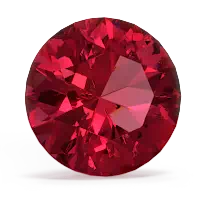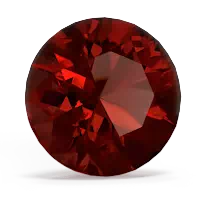

The gemstone is the star in these elegant Lab Ruby solitaire pendants. Gem of hot summer nights and steamy red sunsets, ruby is the birthstone of July. Show the world the passions within you with a fiery ruby ring. One of the oldest gemstones in history, garnet is the birthstone of January. Garnet rings have been popular since Victorian times, and are treasured for their deep red color.